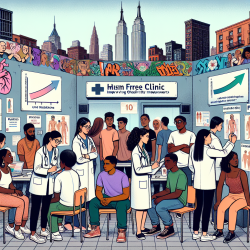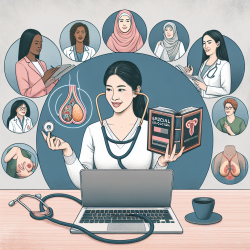The healthcare landscape is continually evolving, with new models emerging to address the needs of underserved populations. A recent study titled "Evaluation of patient health outcomes of a student-run free clinic in East Harlem" has shed light on the effectiveness of student-run clinics and their ability to meet or exceed national healthcare standards. This blog will explore the key findings of this research and discuss how practitioners can leverage these insights to improve their skills and services.
The Role of Student-Run Free Clinics
Student-run free clinics (SRFCs) have become critical components of the healthcare system, particularly for uninsured and marginalized populations. These clinics provide essential services while offering medical students valuable hands-on experience under the supervision of faculty physicians. The East Harlem Health Outreach Partnership (EHHOP) is one such clinic that has demonstrated remarkable success in delivering high-quality care.
Key Findings from the EHHOP Study
- The EHHOP clinic met or exceeded national metrics in 16 out of 18 Healthcare Effectiveness Data and Information Set (HEDIS) measures.
- The clinic excelled in health screenings such as HbA1C, breast cancer, and cervical cancer screenings compared to national averages.
- EHHOP patients received higher rates of follow-up after emergency department visits and flu vaccinations than those on Medicaid HMO.
- The study highlighted areas for improvement, including BMI screening and hypertension control.
Implications for Practitioners
The success of EHHOP offers several lessons for healthcare practitioners:
- Focus on Preventive Care: The high rates of preventive screenings at EHHOP underscore the importance of regular health checks to catch conditions early.
- Cultivate Patient Relationships: Building trust with patients can lead to better health outcomes. EHHOP's model of frequent patient contact demonstrates this effectively.
- Pursue Continuous Improvement: Identifying areas for enhancement, such as BMI screening and hypertension management, is crucial for maintaining high standards of care.
- Leverage Student Involvement: Engaging medical students not only aids in their education but also enhances patient care through increased attention and follow-up.
The Path Forward: Encouraging Further Research
This study serves as a call to action for other SRFCs and healthcare providers to evaluate their services against national benchmarks. By doing so, they can identify strengths and areas needing improvement, ultimately leading to better patient outcomes. Practitioners are encouraged to conduct further research to explore innovative ways to deliver quality care, especially in resource-limited settings.
If you're interested in delving deeper into this research, I highly recommend reading the original study. Evaluation of patient health outcomes of a student-run free clinic in East Harlem.










